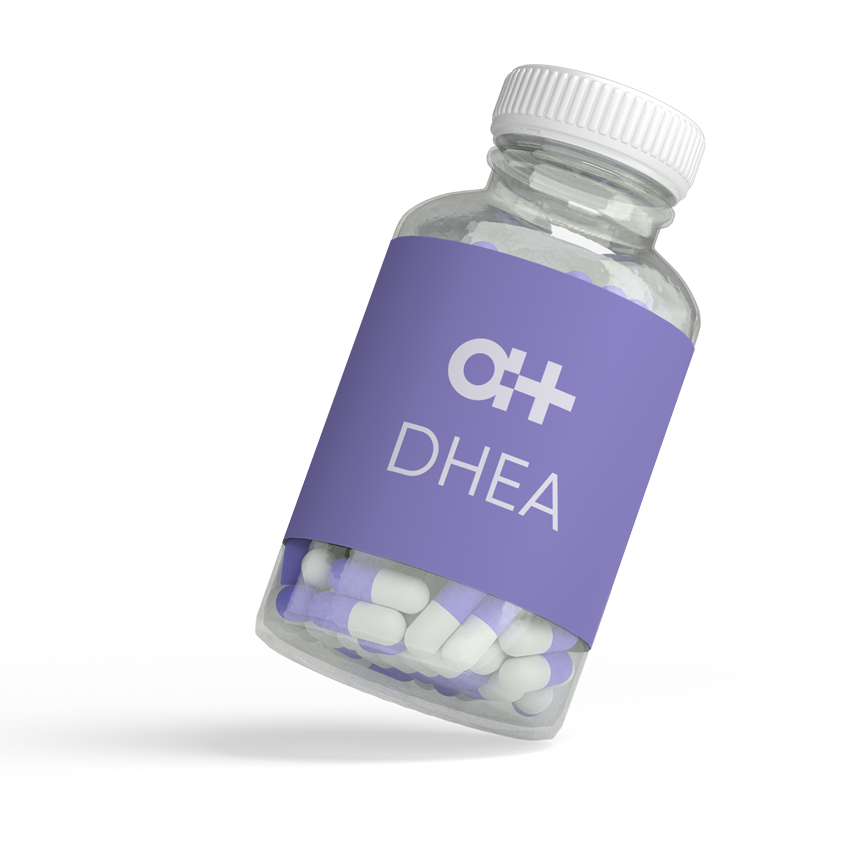
DHEA
DHEA
DHEA (Dehydroepiandrosterone) is a naturally occurring hormone produced by the adrenal glands, and it serves as a precursor to both estrogens and androgens (like testosterone). In the context of hormone replacement therapy (HRT), DHEA is often considered a complementary treatment to help address a variety of hormonal imbalances, particularly in women who are in perimenopause or menopause.
DHEA | A Plus Health
Treatment plan tailored to your needs
Same price at every dose, no hidden fees
Free delivery
No insurance required
How DHEA Works in Hormone Replacement Therapy ?
Potential Benefits of DHEA in HRT:
Reducing Symptoms of Menopause:
DHEA supplementation is often considered for women who:
Safety and Side Effects
When to Consider DHEA in Hormone Replacement Therapy
Pairs well with
If you have any questions, you are always welcome to contact us. We'll get back to you as soon as possible, within 24 hours on weekdays.
-
Shipping Information
Use this text to answer questions in as much detail as possible for your customers.
-
Customer Support
Use this text to answer questions in as much detail as possible for your customers.
-
FAQ’s
Use this text to answer questions in as much detail as possible for your customers.
-
Contact Us
Use this text to answer questions in as much detail as possible for your customers.

Why Choose A+ Health for Your Weight Loss Treatment
Expert Medical Supervision You Can Trust
Your treatment is overseen by board-certified physicians who specialize in metabolic health and diabetes management. Every prescription is carefully reviewed to ensure it's right for your specific health profile and goals.
Comprehensive Care, Not Just Medication
Beyond prescribing, our medical team provides ongoing monitoring, dosage adjustments, and support throughout your treatment journey. You're never navigating your health alone.
No Insurance Hassles Required
While we work with most insurance plans, our transparent pricing means you always know your costs upfront. No surprise bills, no complicated coverage questions—just straightforward, accessible care.
